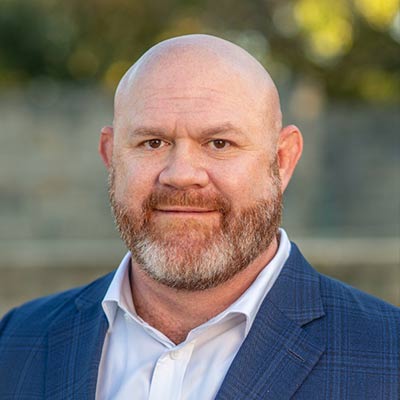Introduction
In recent years, the frequency and severity of data breaches targeting large organizations have escalated dramatically. These breaches often compromise sensitive personal information, including Social Security numbers (SSNs), credit card details, and medical records. Such incidents have profound implications, not only for the organizations but also for the millions of individuals whose data is exposed. This paper explores the surge in data breaches, their impact on personal data security, and the steps individuals can take to protect themselves, particularly focusing on credit security and minimizing information disclosure.
The Uptake in Data Breaches
Large organizations, including corporations, healthcare providers, and government entities, have become prime targets for cybercriminals. The reasons are clear: these institutions store vast amounts of valuable personal data, and their security measures, while sophisticated, often lag behind the increasingly complex tactics used by cyber adversaries.
Between 2020 and 2023, the number of data breaches affecting large organizations rose by over 30%, according to various cybersecurity reports. High-profile breaches during this period involved Fortune 500 companies, healthcare giants, and even government agencies. The compromised data often included SSNs, which are particularly valuable to criminals due to their use in identity theft and fraud.
Impact on Individuals
The exposure of personal data, particularly SSNs, can have devastating effects on individuals. Identity theft is one of the most common consequences, leading to financial losses, damaged credit scores, and even legal issues for the victims. Furthermore, once an SSN is compromised, the effects can be long-lasting, as SSNs do not change easily.
Protecting Yourself: Locking Your Credit
Given the rising threat of data breaches, it is crucial for individuals to take proactive steps to protect their credit and personal information. One of the most effective methods is to lock your credit.
Steps to Lock Your Credit:
- Contact the Major Credit Bureaus:
- The first step in locking your credit is to contact the three major credit bureaus: Equifax, Experian, and TransUnion. You can request a credit freeze online, by phone, or by mail.
- A credit freeze restricts access to your credit report, making it difficult for identity thieves to open new accounts in your name.
- Verify Your Identity:
- When requesting a credit freeze, you will need to verify your identity. This may involve answering security questions, providing a copy of your ID, or supplying other personal information.
- When requesting a credit freeze, you will need to verify your identity. This may involve answering security questions, providing a copy of your ID, or supplying other personal information.
- Receive a PIN or Password:
- After your credit is frozen, you will receive a PIN or password that you can use to temporarily lift the freeze when applying for credit.
- After your credit is frozen, you will receive a PIN or password that you can use to temporarily lift the freeze when applying for credit.
- Monitor Your Credit Reports:
- Even with a credit freeze, it is essential to regularly monitor your credit reports for any unauthorized activity. You are entitled to a free credit report from each bureau once a year at AnnualCreditReport.com.
- Even with a credit freeze, it is essential to regularly monitor your credit reports for any unauthorized activity. You are entitled to a free credit report from each bureau once a year at AnnualCreditReport.com.
- Consider Credit Monitoring Services:
- For additional protection, you may want to enroll in a credit monitoring service. These services can alert you to changes in your credit report, allowing you to respond quickly to potential identity theft.
Minimizing Information Disclosure: Protecting Your SSN and Personal Data
Another key strategy in protecting your personal information is to limit the amount of data you share, particularly your SSN. This is especially important in contexts where you might be asked for your SSN, such as at a doctor’s office.
Steps to Minimize Information Disclosure:
- Ask Why:
- When asked for your SSN or other sensitive information, always ask why it is needed. Many organizations request SSNs as a matter of routine, even when it is not strictly necessary.
- When asked for your SSN or other sensitive information, always ask why it is needed. Many organizations request SSNs as a matter of routine, even when it is not strictly necessary.
- Provide Alternatives:
- If an organization requests your SSN, ask if there is an alternative. For example, you might be able to provide your driver’s license number, patient ID, or another identifier instead.
- If an organization requests your SSN, ask if there is an alternative. For example, you might be able to provide your driver’s license number, patient ID, or another identifier instead.
- Limit Data Sharing:
- Share only the minimum amount of information necessary. For example, when filling out forms, provide only the information that is required, leaving optional fields blank.
- Share only the minimum amount of information necessary. For example, when filling out forms, provide only the information that is required, leaving optional fields blank.
- Request Confidentiality:
- In healthcare settings, ask how your information will be stored and who will have access to it. Request that your SSN and other sensitive data be kept confidential and not used unless absolutely necessary.
- In healthcare settings, ask how your information will be stored and who will have access to it. Request that your SSN and other sensitive data be kept confidential and not used unless absolutely necessary.
- Be Cautious with Digital Forms:
- When submitting information online, ensure the website is secure (look for “https://” in the URL) and consider whether the data being requested is necessary.
Conclusion
The increasing prevalence of data breaches among large organizations underscores the importance of taking personal responsibility for your data security. By locking your credit and limiting the disclosure of your SSN and other personal information, you can significantly reduce your risk of identity theft and fraud. As cyber threats continue to evolve, staying informed and vigilant remains your best defense.
Taking these proactive steps not only safeguards your financial and personal well-being but also contributes to a broader culture of data security. In a world where personal data is increasingly vulnerable, every individual has a role to play in protecting it.
Get in touch with us
Secutor Cybersecurity is a trusted partner comprised of industry leading experts in the fields of Cybersecurity and Governance, Risk and Compliance. We partner with our clients to deliver on-demand solutions tailored to expertly navigate the regulatory demands of their specific industries.
Our proven track record of successfully exceeding client expectations is achieved through the combination of our methodical approach, advanced technologies, subject matter experts, and synergy with client team members.
Secutor is your team of world-class problem solvers with vast expertise and experience delivering complete solutions keeping your organization protected, audit-ready, and running smoothly.







